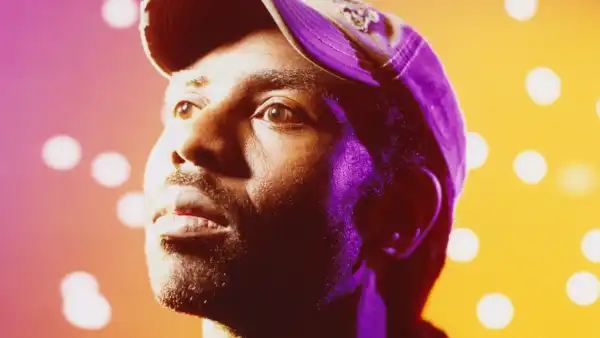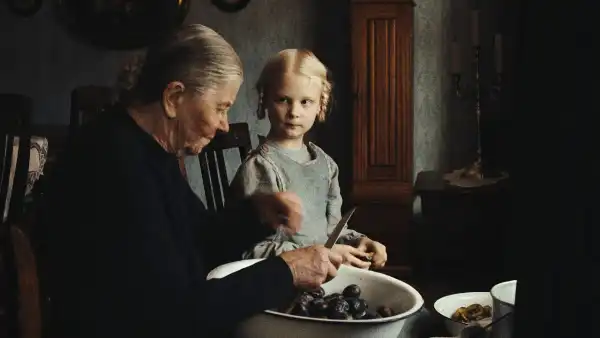
On weekends, my husband and I are in a house near a lake, surrounded by woods. We are miles away from everything. When we wake up there, it is to silence, and for some time on those mornings we lie still, letting the day gather around us, listening to each other breathe.
When we get up, we start the day separately. My husband drives off to get the paper at a gas station. This is seven miles away, on country roads, so he’s gone for twenty minutes or half an hour. I go downstairs and make myself breakfast. I eat it alone in the kitchen, then I take my coffee to my desk to work.
But that morning, while I was still upstairs, I had the vague sense that my husband hadn’t left. Usually he calls the gas station to make sure the paper is in, so maybe it hadn’t come yet. Maybe he was downstairs in the kitchen, or upstairs. I couldn’t have said what creakings or murmurs, what soft distant sounds or their absences—his voice on the phone, his step on the stairs, the clang of a pan in the kitchen, the closing of the front door, his car starting up out by the garage—what barely acknowledged, minimally perceived scraps of information had formed my opinion. But that morning I thought he was still in the house.
In the bathroom, I washed my face and brushed my teeth, then opened the medicine cabinet. I take Synthroid, for a thyroid condition, and a lot of vitamins and supplements: omega-3 and some others. I took the Synthroid, and then started on the rest. A few days earlier, I’d run out of the omega-3 and I’d bought a bottle of a different brand, at a strange pharmacy. This was in New York. We’d been invited to dinner at a friend’s house, and somehow we’d arrived too early. To pass the time, we walked around the block, and when we saw a drugstore I remembered the omega-3. The pharmacist was a pleasant man; he held up the bottle. “This is the best for omega-3,” he said. “The very best brand.” The bottle was dark brown, so I couldn’t see the size of the pills. I’d once had a bad time taking a pill, so now I’m careful about sizes. But the pill I’d had trouble with was hard, and omega-3 is fish oil, so it would be soft. And this was the very best brand.
That morning, I took the Synthroid, with a little gulp of water. Then I opened the new bottle of omega-3 and tore off the protective layer that sealed the mouth. I took out a capsule and held it between my finger and thumb. It was a soft oblong, golden and translucent, somehow radiant. It was solid. It seemed very big. Not just long, which doesn’t matter to your throat, but also thick, which does. It seemed squat and intractable. I squeezed it. It barely yielded. But the pharmacist had said it was the best brand. It was not much bigger than the pills from my other brand. Or, anyway, I hoped it wasn’t.
Thought makes swallowing nearly impossible. Once anxiety enters in, the pill becomes the enemy of your body. You can drink glass after glass of water, hoping to conceal the pill in a tidal wash, to no avail. Your tongue becomes a goalkeeper—agile, muscular, vigilant. Whenever the pill is swept toward the goal of the open throat, no matter what your brain urges, your mutinous tongue sweeps it to one side.
That morning, I decided to avoid the struggle altogether. I took the pill in two fingers and thrust it neatly down my throat, beyond the swallowing place. It was in.
At once, I knew how bad it was.
It was like a cork in a bottle.
My throat was plugged tight. I couldn’t swallow. I couldn’t talk. I couldn’t breathe. Before my mind understood this, my body knew. Nothing had happened yet, I wasn’t in pain, I was clear-headed and upright, but my body set off an alarm of extreme peril. Panic flooded through me, cascading terror.
I found myself leaning over and I began convulsing. My chest heaved and bucked, the torso muscles clenching as my lungs strove for air. I felt myself going into spasms, hunched, helpless, jerking. I heard myself making strange, urgent sounds, from deep in my center.
The other time I’d had trouble with a pill, I had ended up in the E.R. That time, the pill wasn’t stuck solid; it had been half-stuck. It had been poised on the cusp of the two branching channels: the trachea, which led to the lungs, and the esophagus, which led to the stomach. If it tipped into the trachea, it would seal off my air, and I would die. If it tipped into the esophagus, I wouldn’t even notice it: it would be digested. At the time, I didn’t know exactly where the pill was, or what the risk was, but with each breath I felt it teeter, and the mounting terror that rose through my body informed me how close it was to shutting me down. I could still breathe, but only barely, and each breath felt perilous. My body was declaring the fact that I was near death.
It was ten o’clock at night, and my husband was away. I was alone. This was years ago, in a different house. I was in the kitchen, and I picked up the phone to call for help. The line was dead. Later, I found that I’d left the phone off the hook upstairs, but at the time, it was like being in a horror movie. I tried to give myself the Heimlich, pressing my stomach against the sharp wooden corner of the kitchen island, but it’s surprisingly difficult: you have no leverage. All the time I was doing these things—trying to fix the situation, call 911, or Heimlich myself—I was breathing. And, each time I breathed, I felt the internal flutter, which reminded me of how perilous the situation was. With each breath, I felt adrenaline—fear—flooding through my body. I thought of driving to the hospital, ten miles down the highway, but I was afraid the pill would fall into my windpipe while I was driving, and I would black out at seventy-five miles per hour. I didn’t want to hurt anyone else, and also I didn’t want to choke to death alone in my car.
I remembered then that a man who lived near us was an E.R. doctor. I ran out into the darkness and got into my car. I drove to his house, which was just down the road. I went in the back door, which opened into the kitchen. His wife was sitting on the table, with her feet on a chair. She was talking on the phone.
“Something’s stuck in my throat,” I said. It was the first time I’d spoken, and my voice was high and strange. She called for her husband, who was upstairs.
He came down at once. He listened to my chest and then called the hospital to say he was bringing me in. He was very calm, which reassured me. But, on the highway, I saw how fast we were going, and I was frightened again by the flutter.
When we reached the hospital, a team was waiting outside with a gurney. They wheeled me inside. I lay still under the lights as he palpated my throat, moving his strong fingers carefully along its length. When he reached the place where the pill was, I felt it drop neatly into my gullet, on its way to my stomach. I swallowed. A wave of relief swept through me. I took a long, full ecstatic breath.
“My god,” I said. “It’s gone.” I felt I could fly.
“Good,” he said.
I swallowed again. It was a miracle. “Why didn’t you do that before, at the house?”
“Because I didn’t know which way it would go,” he said. “If it had gone the wrong way you’d have had ninety seconds.”
So that number was in my mind. My throat had been closed off. It had become a dead end, no longer a channel. You don’t know how remarkable that feels—or how wrong—until it happens.
This wasn’t how it feels when you deliberately take a deep breath and then hold it, when you feel triumphant and in control. I hadn’t drawn a big breath. I had no extra air, no reserve. My lungs were barely half-full, and now they were sealed shut. This was a closure. Suddenly, it was over, the easy partnership with the atmosphere, the familiarity with oxygen. Breathing. Everything would be over in ninety seconds. I imagined a big modern wall clock, the second hand sweeping efficiently around the circle.
I was stuck; my whole self was stuck.
I found myself in a different part of the room: now I was near the door. My torso was bucking in terror, and I was making those sounds. I couldn’t drink to sluice it down because I couldn’t swallow. I couldn’t breathe. It was now eighty seconds. I was beginning to drool. Saliva was seething inside my mouth, filling it, and since I couldn’t swallow, it had begun to flood out. For some reason it was white: I was frothing. My mouth was wide with terror.
I ran out into the upstairs hall. I had the feeling that my husband was in the house, but I didn’t know where. He might be in his study, but that was down at the far end of the hall. I couldn’t call him to find out because I couldn’t call. I didn’t dare go down to the end of the hall to see: If he weren’t there, I’d have wasted many seconds, and I didn’t have many left. I felt as though I were inside a gleaming funnel with steeply sloping sides, sliding toward a final tiny point that would lead to something I couldn’t imagine.
I thought he was downstairs. I was betting my remaining seconds on it.
I ran down the front stairs. I was racing, but I was holding carefully onto the railing. I knew I couldn’t afford to fall. When I reached the foot of the stairs, I thought, seventy seconds. I ran through the living room and then the dining room, through the pantry and in to the kitchen. Now sixty.
My husband was across the room, standing at the sink, his back to me. He turned as I came running in. My chest was solid as stone. My torso was heaving, and I was making those sounds. White froth was spilling down my chin. I pointed at my throat. I ran to him and turned my back. He put his arms around me and clasped his hands below my ribs. I felt them close around me. He gave a sharp, powerful, percussive hug, jerking his linked fists against the yielding tissue of my stomach.
I was bending forward, away from him. When he gave that sharp jerk against my stomach, the pill flew out of my throat. I could see it, lying fat and glistening, still golden, on the table, but I still couldn’t speak or breathe. My throat was still locked shut. I was still making those awful airless glugs. I was still foaming.
He tried to grab me again, thinking it hadn’t worked, but I shook my head and pointed at the pill. I still couldn’t breathe. I was still bucking and heaving, bent forward, leaning on my elbows on the table, my throat locked shut.
Something shifted in my throat, and it opened slightly.
I took a breath of air. My eyes were streaming. I wiped my eyes, and then I wiped the foam away from the corners of my mouth. I straightened up.
It was over.
When you can breathe, you can breathe. Anything else seems impossible. There was nothing more to do now; that ticking clock had stopped. My lungs were opening and closing, easily and smoothly. Each time, air filled them with its light, ebullient promise.
But the next morning, when we woke up, as we lay there in those moments when we were both awake but not yet speaking, I felt him turn. I was lying with my back to him, and he wrapped himself around me as he had done in that urgent embrace.
It was over, but we could still feel the waves of shock. They were moving through our shared life, slow and pulsing, like ripples across water. As though something very large had entered the space we shared, just missing us.
It had come very close.
For a while, we lay still in the silence, just listening to each other breathe.
Sourse: newyorker.com






